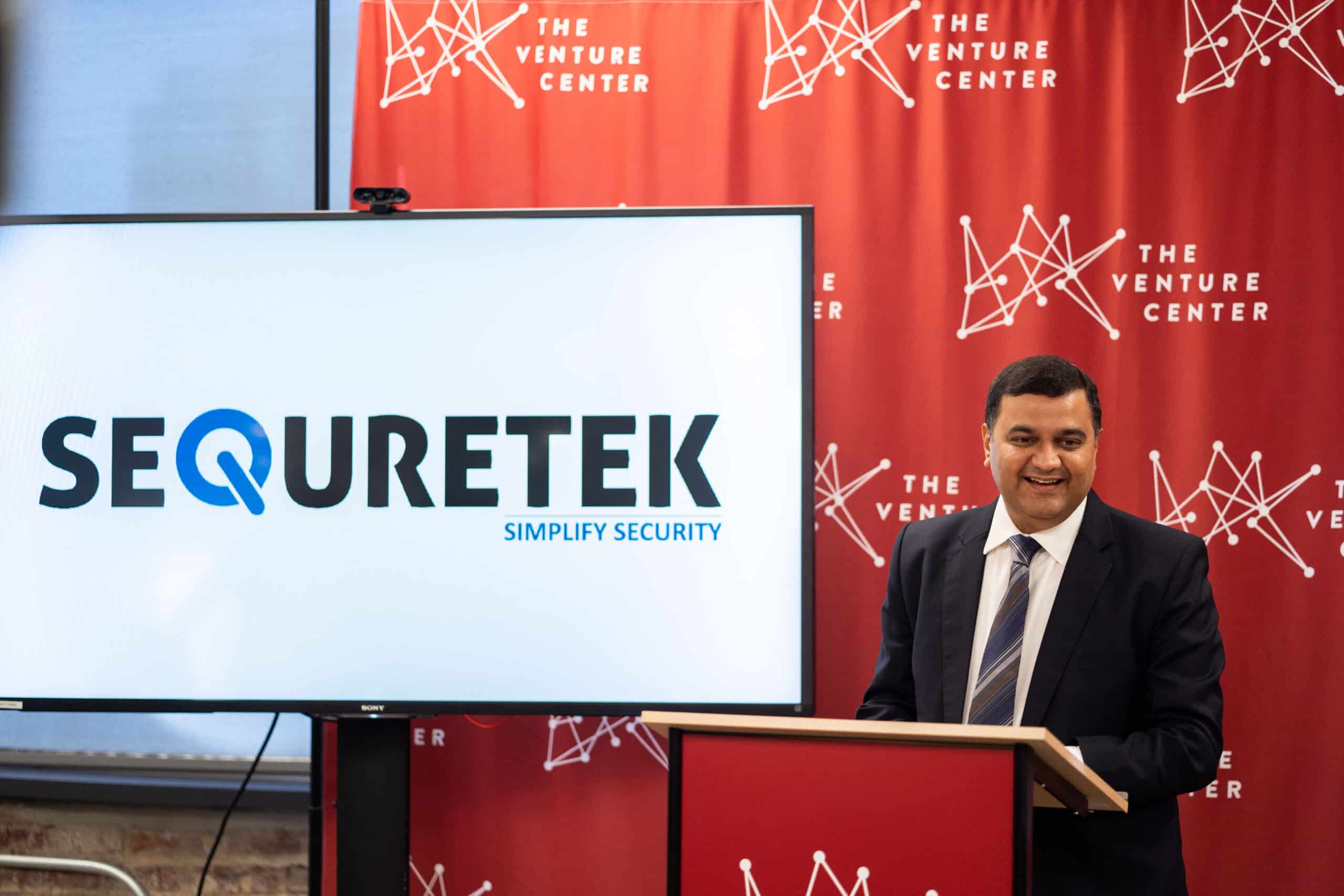From India to Little Rock, Where Smaller is Better

Read the original article here.
When Anand Naik began considering where to open offices in the United States for his India-based Sequretek, the executive thought it made the most sense to have headquarters near New York City or Silicon Valley, where the cybersecurity company could have easy access to capital and potential clients in industries ranging from finance and health care to manufacturing and retail.
That was until Naik learned about The Venture Center of Little Rock, which provides support for entrepreneurs and early-stage startups. So he applied for Sequretek to participate in one of the organization’s accelerator programs and was accepted.
Last August, about two years after completing that program, the company announced it would open its U.S. headquarters in the Little Rock Technology Park, a move that defied trends of tech businesses launching operations on the East and West coasts.
“We would just be one more company there,” Naik said. “Compared to here, where we are the cybersecurity company. If you expand, then you are creating jobs, which matters to the local community.”
Sequretek is one of a handful of companies that moved headquarters to Arkansas after involvement with The Venture Center. Hexanica, which offers data management services driven by artificial intelligence, moved to Little Rock from New York City. Bond.ai, which uses artificial intelligence to help banks understand consumer behavior, moved here from San Francisco.
The tech sector — nascent in rural states — is growing in Arkansas. Data from the nonprofit Computing Technology Industry Association showed that the number of people employed in the tech sector here grew by 1,099 workers in 2022, and it projects about 1,100 new tech jobs this year. The trade group says the tech sector in Arkansas has an impact of $4.3 billion, or about 3% of the state’s economy.
Companies like Sequretek are taking strategic risks by opening in Arkansas, risks that executives say are driven by untapped market demand in the region, easier access to decision makers at companies that could be potential clients, and lower operating expenses. It’s a formula whereby sometimes smaller is better. So far, it appears to be paying off.
“We felt that being a reasonable-sized fish in a small pond is better than a nobody in a market like New York,” said Naik, who worked as the India and Southeast Asia CEO for Semantech Inc. before co-founding Sequretek in 2013. “We were looking at cost efficiency, a tax efficient state and a business-friendly environment.”
Naik said he also believes it matters more to companies located in the South that Sequretek has headquarters in Little Rock. He said it engenders more trust, enabling his cybersecurity firm to cultivate closer relationships with executives in other industries.
“The fact that we are right here in the heart of the U.S., it helps,” Naik said. “It brings a lot of confidence to the customers about our seriousness.”
He also is able to take advantage of untapped market demand as small to midsize companies increasingly become target of cyberattacks and seeking to protect themselves. Up to 60% of small companies hit by data breaches and cyberattacks close within six months, according to Cybercrime Magazine.
There are still challenges. Finding talent is one of the main obstacles. There are 15 employees in Sequretek’s Little Rock headquarters, where its data center is also located. Executives hope to grow the team to 40 over the next couple of years.
They’re exploring creative ways to find tech workers. For example, Sequretek partnered with the nonprofit Arkansas Center for Data Sciences to recruit employees via an apprenticeship program. “While finding talent is difficult, my hope is retaining talent is not that difficult,” Naik said. “We are looking [to hire] locals from the state who want to stay in the state.”
The driving factor for moving to Little Rock was a welcoming environment.
“You feel welcome by everybody who matters in the ecosystem,” Naik said. “I have not yet come across anybody who means harm or foul to you.”
